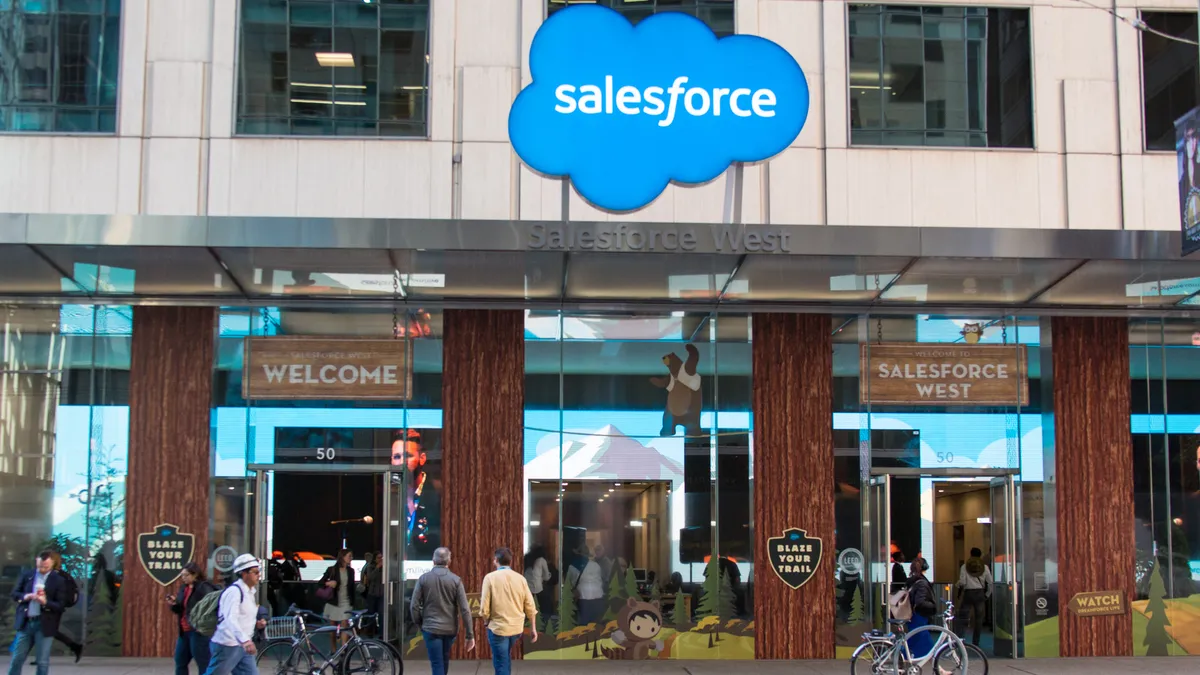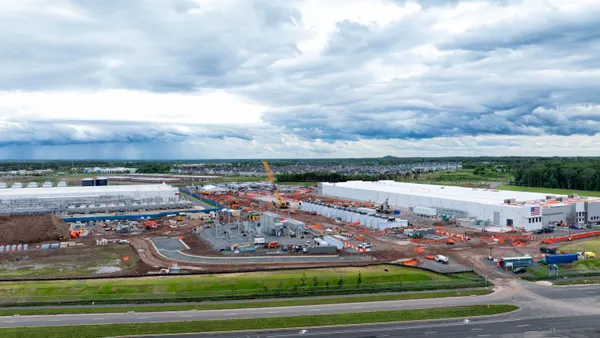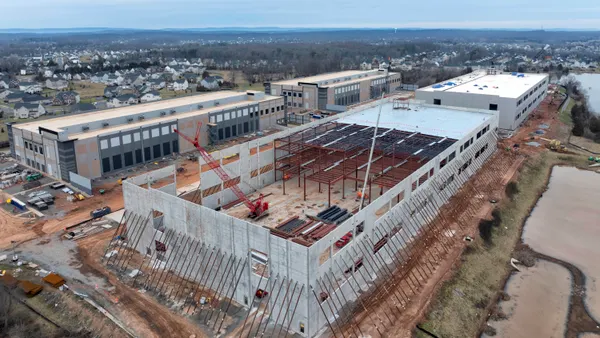Dive Brief:
- Salesforce is working to mitigate key agentic AI adoption hurdles around governance in its latest upgrades to the Agentforce platform, the company said Monday.
- Agentforce 3 includes a command center that supports Model Context Protocol, an interoperability standard. The offering is built into Agentforce Studio and aims to help enterprise customers monitor, measure and optimize AI agents. Via dashboards, enterprises can track agent adoption, feedback, success rates and costs.
- The Agentforce architecture got a boost, too, with expanded model options, automatic model failover capabilities, lower latency and greater accuracy, according to Salesforce. The vendor also added more than 100 pre-built “industry actions” for agents, such as patient scheduling, vehicle servicing and advertising proposal generation.
Dive Insight:
At less than a year old, Salesforce’s Agentforce is already entering its third iteration as the vendor looks to encourage enterprise adoption.
“As [customers] deploy more and more agents, they need to be able to measure their efficacy. They need them to play well with other technologies in their stack,” Sanjna Parulekar, SVP of product marketing at Salesforce, said during a press conference Monday.
Salesforce plans to continue building agent management tools as part of its product roadmap.
Interoperability plays a key role in the strategy, too, executives said Monday. In addition to supporting the MCP standard, the software vendor has aligned with a broad industry push for shared agent protocols.
The company unveiled an agentic marketplace, called AgentExchange, as part of Agentforce 3. Using open standards like MCP and Agent2Agent, customers can access a variety of agents from 30-plus partners that can interact, communicate and collaborate directly with each other.
“If you’re going to have agents do things across your business, they need to be able to connect to all the same kinds of systems that a human can do to complete that task,” Salesforce AI EVP and GM Adam Evans said.
The promises of Agentforce continue to intrigue enterprises. Salesforce said 8,000 customers signed up in the past six months to deploy the platform, but the company did not respond to questions about how many customers had moved from pilots into production.
PepsiCo is one of the more recent enterprises to deploy Agentforce and “one of the first major food and beverage companies” to do so, the companies announced Tuesday.
The partnership with Salesforce is the latest step toward PepsiCo’s agentic aspirations, following yearslong investments in digital transformation and progress on cloud and data goals.
The food and beverage giant has already begun to deploy Agentforce as part of its customer service operations in the Americas and is prepping for a wider rollout to other regions and departments in 2026, according to Athina Kanioura, the company’s EVP and chief strategy and transformation officer.
“Our plan is to have one common orchestration layer that we can use to manage the agents,” Kanioura told CIO Dive Tuesday.
Upskilling for employees who will work side by side agents, as well as for managers who will be in charge of the technology, is ongoing. “We are going through a massive certification process,” Kanioura said.
There’s also a team rethinking processes to adapt to a network of physical and digital agents and facilitate seamless execution. “Having the right qualifications, the right governance and the right processes to govern this ecosystem is important,” Kanioura said.















